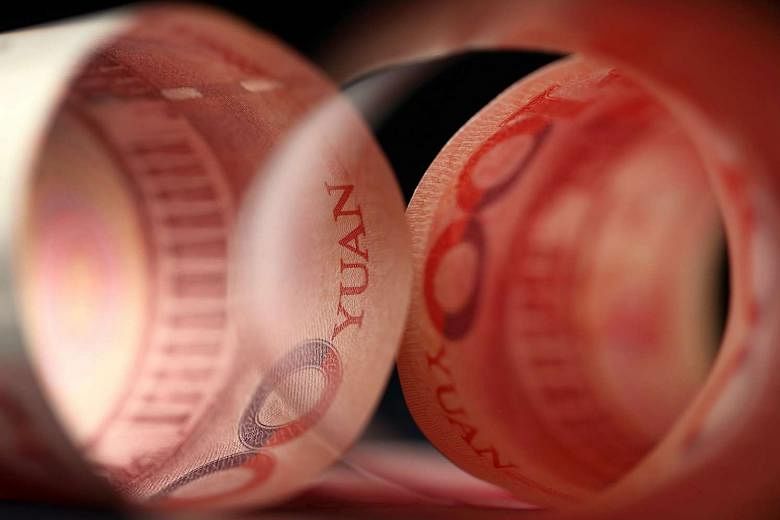China's economic managers, generally known for their sagacity, have been signalling panic lately. Yesterday's shock move to devalue the yuan has that element.
The central bank called the devaluation a one-off move but the worry points are growing.
For a while it's been clear that China has been dipping into its vast forex reserves to shore up the currency. One analysis suggested that the People's Bank of China (PBOC) depleted US$299 billion (S$414 billion) of reserves in the year through June. Beijing sought a steady yuan partly because of its quest for reserve-currency status with the International Monetary Fund.
Trade numbers over the weekend suggest an export slowdown, adding to worries that the world's No. 2 economy is buffeted by headwinds at home. On June 28, the PBOC cut benchmark interest rates to a record low. Four rate cuts since November suggest the struggle to meet the 7 per cent growth target for 2015. Indeed, many think the economy is in worse shape; unsold homes in China, for instance, outnumber those in the US before the sub-prime crisis. Mr Ruchir Sharma, emerging markets head at Morgan Stanley, recently predicted that the next global recession "would be made by China".
More telling perhaps is capital flight, evidenced in myriad ways, including snap purchases of expensive real estate abroad by Chinese investors. Last month, Goldman Sachs researchers estimated that US$224 billion flowed out of China in the second quarter, levels "beyond anything seen historically". At the time, China's foreign exchange watchdog insisted that there had been "no large and continued capital flight so far". Not many are convinced. Some calculate that capital outflows may have hit US$800 billion over the past year.
During the Asian financial crisis, China's decision to not indulge in competitive devaluation was a major factor in helping East Asian economies recover. Today, it seems to have judged that it has to think of itself first. Expect more yuan slides.

